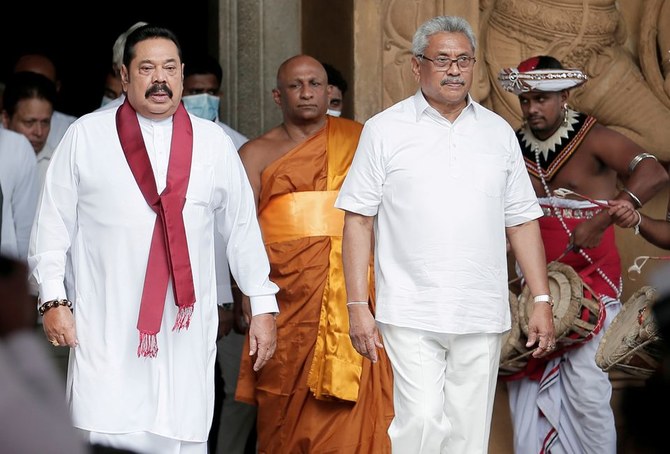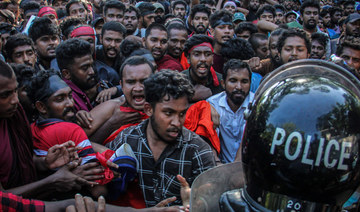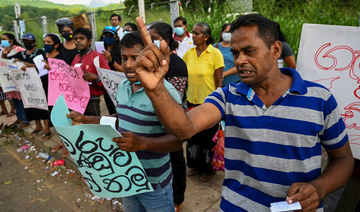COLOMBO: Most Sri Lankan businesses and schools were closed, and public transport was interrupted on Thursday as workers joined a general strike calling for the president to step down over the island’s growing economic and political crisis.
Angry over skyrocketing inflation, stalled imports of fuel, medicines and food, and hours of daily power cuts, people across Sri Lanka have been protesting since last month, demanding the resignation of President Gotabaya Rajapaksa and his government.
The United Trade Unions and Mass Organizations, which represents public and private sector workers’ groups, said in a statement on Wednesday that it was seeking the removal of the government, which had made “life difficult for the general public.”
Bankers, teachers, public transport workers and other professionals arrived at the main protest site next to the president’s office in the capital Colombo, where demonstrators have gathered for weeks.
“Today we embarked on a one-day token strike. We are made up of employees from 54 banking organizations,” Channa Dissanayake, president of the Ceylon Bank Employees Union, told Arab News.
“What began as an economic breakdown became a political breakdown, and now has become a social breakdown. The newly appointed governor of the central bank has temporarily halted debt servicing. Although no one wants to say it, what this means is that we are bankrupt. What is there left to talk about? We absolutely need a reformation.”
Sri Lanka is facing its worst economic crisis since independence in 1948 and is about to default on its debts. The country of 22 million has suspended repayment on its foreign debts, $7 billion of which was due this year, and currently has foreign reserves of less than $1 billion.
Government officials say they have been discussing rescue plans and loan repayment with the International Monetary Fund.
According to bankers, it is too late.
“This is a great tragedy that has unfolded in the country. Economists warned for a long time that this would happen, but they didn’t listen. Economists said to go to the IMF, but they didn’t. Now everything has broken down,” Dissanayake said.
“As a responsible trade union, we have stepped in to say we want a system change.”
Medical workers also joined the strike, but did not suspend their services.
“Although we have decided not to stop work today, we are picketing and demonstrating, and are fully in support of trade union action,” Dr. Naveen De Soyza, assistant secretary to the Government Medical Officers Association, told Arab News.
Doctors went on strike only for two hours during their lunch break.
“The only reason we didn’t stop work is because it is the patients who will suffer. They are already facing shortages of medicines and other supplies. But if the government doesn’t listen to the people, we will have to consider the next option and make a hard decision,” De Soyza said.
“The government should listen to what the people are saying. The people want the government to step down.”
Striking unions have announced they will stage a larger protest on May 6 if their demands are unmet.
Rajapaksa reshuffled his Cabinet and offered a unity government in a bid to quell protests, but opposition parties refused to be part of a setup headed by the president and his brother.
The Rajapaksas are the country’s most influential political dynasty. The president’s elder brother, Mahinda, is serving as prime minister, while the younger brother, Basil, was finance minister until he resigned earlier this month.
























